EU Sustainability Simplified: The Omnibus Proposal Explained
Navigate the complexities of EU sustainability regulations with ease! This blog breaks down the Omnibus proposal, explaining its impact on businesses, reporting timelines, and what EFRAG is doing to simplify compliance. Stay informed and prepared for the future of sustainable business practices.
Green Survey
4/16/20253 min læsning


Understanding the EU Omnibus Proposal: A Clear Guide for Everyone
The European Union has been at the forefront of sustainability regulation, introducing ambitious rules such as the Corporate Sustainability Reporting Directive (CSRD), the EU Taxonomy Regulation, and the Corporate Sustainability Due Diligence Directive (CSDDD). While these measures aim to make Europe greener and fairer, many businesses especially smaller ones have found them complex and costly to implement. Responding to these concerns, the European Commission introduced the Omnibus proposal, a package of reforms designed to simplify sustainability reporting, reduce unnecessary administrative burdens, and help companies comply more easily while still supporting the EU’s sustainability goals.
Where Did the Omnibus Proposal Start?
The Omnibus proposal was officially published by the European Commission on February 26, 2025. This initiative was a direct response to calls from businesses, industry groups, and member states for a more manageable regulatory environment. The Commission’s goal is to achieve at least a 25% reduction in administrative burdens for companies, with a particular focus on small and medium-sized enterprises (SMEs). The proposal is part of a broader effort to create a more favorable business environment and ensure that EU companies can remain competitive while transitioning to a sustainable economy.
What Changes Does the Omnibus Proposal Bring?
The Omnibus proposal introduces several key changes:
Narrower Scope: The most demanding sustainability reporting requirements will now focus on larger companies (those with more than 1,000 employees and significant financial turnover), easing the burden on smaller businesses.
Delayed Deadlines: Many reporting deadlines are postponed by up to two years, giving companies more time to adapt to the new requirements.
Simplified Reporting: The number of mandatory data points is reduced, and the reporting process is streamlined to focus on what is most relevant and impactful.
Supply Chain Due Diligence: Companies will only need to check their direct suppliers for environmental and human rights risks, unless there is a clear reason to investigate further.
Reduced Legal Risk: The proposal removes certain civil liability provisions, reducing the legal risks for companies in relation to their supply chains.
These changes are designed to make sustainability reporting more practical and less resource-intensive, especially for smaller companies.
Timeline: Key Milestones and What’s Next
Here’s how the process has unfolded and what to expect moving forward:
February 26, 2025: The European Commission publishes the Omnibus proposal.
March 2025: EFRAG (European Financial Reporting Advisory Group) receives a specific mandate from the European Commission to provide technical advice on simplifying the European Sustainability Reporting Standards (ESRS).
April 2025: The Council of the EU gives initial approval to delay some sustainability reporting obligations.
May 6, 2025: Deadline for public feedback on ESRS simplification as part of EFRAG’s consultation.
October 31, 2025: EFRAG is expected to deliver its technical advice on revised reporting standards to the Commission.
2026–2027 and beyond: If adopted, the new rules will be gradually implemented, with some deadlines postponed by up to two years.
Currently, the proposal is under review by the European Parliament and the Council, and both must agree on the final text before it becomes law.
What Has the EU Decided So Far?
As of April 2025, the Council of the EU has approved the so-called “Stop-the-clock” proposal, officially delaying the start of some sustainability reporting and due diligence requirements. This move signals the EU’s commitment to making the rules more practical for businesses. However, the legislative process is ongoing, with the European Parliament still needing to review and vote on the changes before they are finalized.
What Is EFRAG Doing Right Now?
EFRAG is playing a central role in the simplification process. Following a specific mandate from the European Commission in March 2025, EFRAG is tasked with providing technical advice on how to revise and simplify the ESRS. To achieve this, EFRAG has launched a public consultation (open until May 6, 2025) to collect feedback from companies, auditors, and other stakeholders especially those who have already reported under the current rules. EFRAG is also conducting interviews and workshops to identify the most challenging aspects of the standards and to ensure that the revised rules are practical and effective.
EFRAG’s technical advice, due by October 31, 2025, will help shape the Commission’s delegated act that will formally revise the ESRS under the CSRD.
What Does This Mean for Companies in Everyday Terms?
For businesses, the Omnibus proposal means:
Smaller companies may not have to do as much detailed reporting.
Larger companies will have more time to adjust to new requirements.
Due diligence will focus on direct suppliers, making supply chain checks simpler.
The EU is working to make sustainability reporting less of a burden, but the final details are still being discussed.
References
European Commission. (2025). Omnibus proposal to simplify sustainability reporting and due diligence. [Press release and Q&A]. Retrieved from https://ec.europa.eu/commission/presscorner/detail/en/ip_25_1234
European Commission. (2025). Explanatory memorandum on the Omnibus proposal. Available at https://eur-lex.europa.eu/legal-content/EN/TXT/?uri=COM:2025:1234:FIN
EFRAG. (2025). EFRAG’s mandate to simplify European Sustainability Reporting Standards (ESRS). Retrieved from https://www.efrag.org/News/Public-Consultations/2025/Omnibus-ESRS-Simplification
Council of the European Union. (April 2025). Council approval of “Stop-the-clock” proposal on sustainability reporting. Available at https://www.consilium.europa.eu/en/press/press-releases/2025/04/14/
EFRAG. (2025). Public consultation on ESRS simplification. Retrieved from https://www.efrag.org/News/Project-Announcements/2025/ESRS-Simplification-Consultation
Green Survey ApS
info@greensurvey.dk
© 2026 Green Survey ApS. Alle rettigheder forbeholdes
CVR-nr. 41873574


